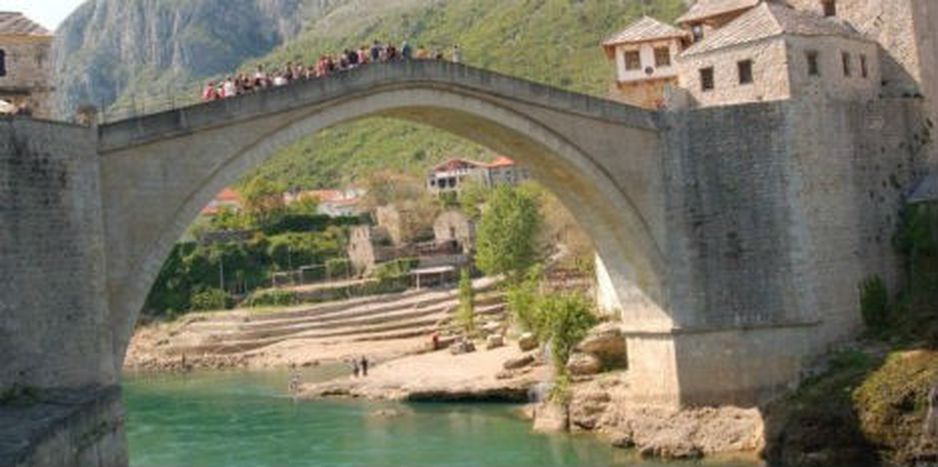
Bosnia:connecting the dots
Published on
Author: Cristian – George Gherasim, Romania Photos are taken by Antoaneta Ivanova The article is the 1st prize winner of the Mladiinfo Article Contest 2012 in category B
The troubles of Bosnia-Herzegovina Two weeks ago, as bitterly cold weather and snow was yet to sweep across much of the Balkans, I flew in the capital of Bosnia-Herzegovina to attend a conference on the country’s future and
challenges of EU membership. Nothing uncanny so far. Rather just another debate between students and specialist around the difficulties ahead. One might say a commonplace event in a country so bound to European institutions via the key role EU special representative in Bosnia plays.
The conference started with the usual praising arguments, stressing the importance of becoming an EU member state and the benefits entailed. Yet, as the debate rolled on and students began voicing their opinions a different mindset slowly began to dawn. It shifted from an unabated consensus on the EU accession to a cautious, sceptical, less enthusiastic approach. It was new ground I was stepping on.
Misgivings over EU bid From afar, European Union seems to be the place they all rush to get to. And that was the misconception I first came to Sarajevo with. But for those deciding Bosnia’s future, EU is much like heaven: everyone wants to go to heaven but don’t want to die to get there. A flimsy analogy saying but one thing: the perks and privileges that come with European Union membership are favoured by all, not so much the painful reforms and social transformation demanded by the accession process.
I imagine this as a bitter pill to swallow for EU officials and enlargement enthusiasts alike. Realising that the Balkans are not longer passionately yearning for Europe, not willing to do whatever it takes to get there, is for many a malaise hard to whisk away. With last month’s low turnout for Croatia EU referendum, this purely intellectual concept sported only in conference halls, gains more ground. It shows the carrot- and- stick approach EU assertively used in the Balkans as obsolete.
This is something European Union has to get a grip on, as well as understanding that Balkan countries can’t be all dealt with in a similar fashion. The region is simply too complex, with local enmities and expedient political interest chipping away at an ever vagrant trans-regional consensus towards the EU. Out of all Balkan states, only Bosnia-Herzegovina and Kosovo have yet to submit their EU membership application. If Kosovo is still a young state, highly contested internationally and on life support from Washington, the same can’t be said about Bosnia-Herzegovina. Yet, Bosnia has shown little national consensus in pushing for reforms and furthering the process of EU integration.



